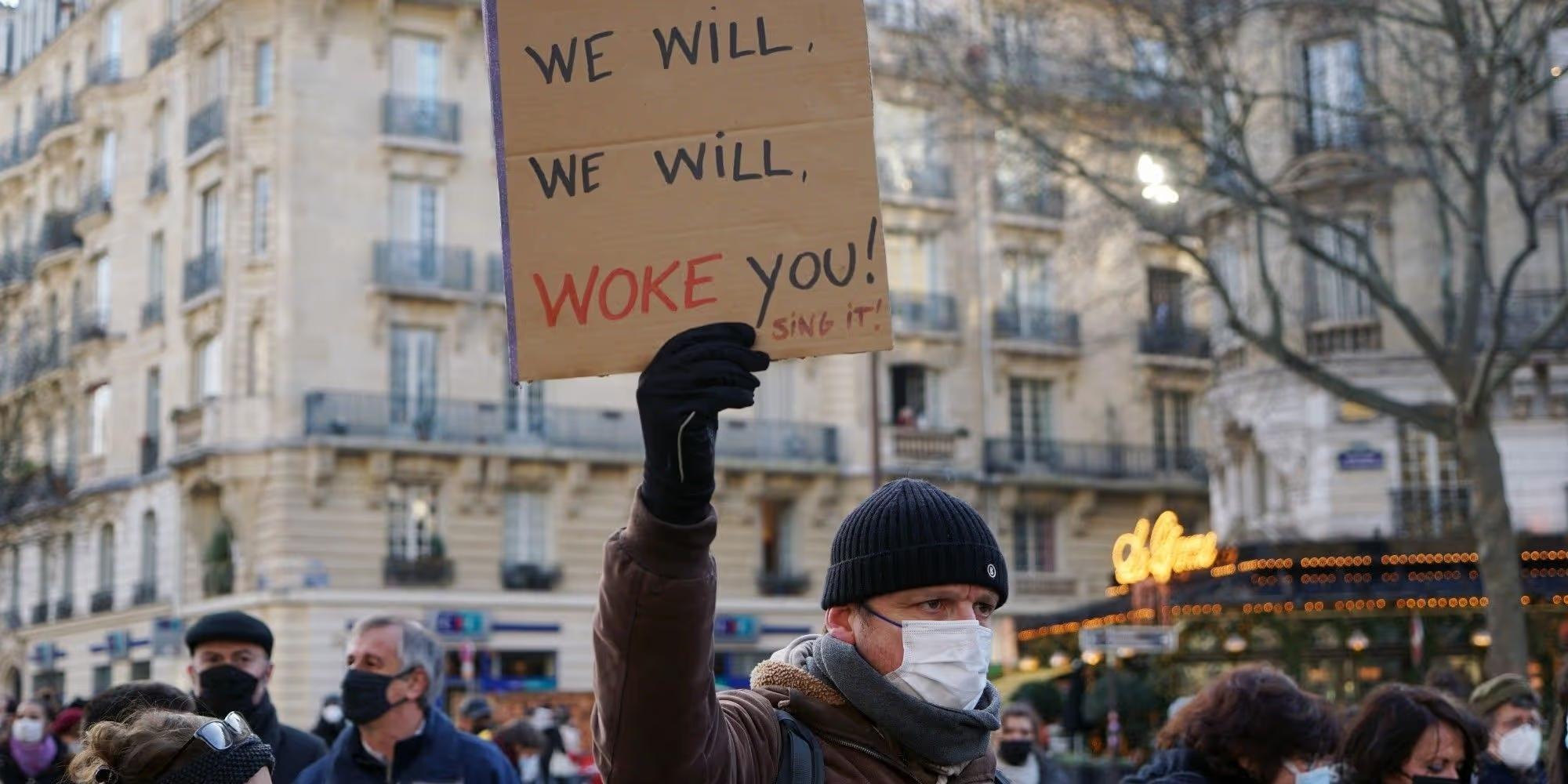"You have to make a decision: Is the elimination of the technological system worth all of the desperate risks and terrifying disasters that it will entail? If you don’t have the courage to answer “yes” to that question, then you’d better quit whining about the evils and hardships of the modern world and just adapt yourself to them as best you can, because nothing short of the collapse of the system will ever get us off the road that we are on now."
Theodore Kaczynski, Anti-Tech Revolution: Why and How
In Anti-Tech Revolution : How and Why ? Theodore Kaczynski notes that long-term predictions of the development of societies are impossible to achieve. He adds: ‘There are good reasons why humans' capacity to control the development of their societies has failed to progress. In order to control the development of a society you would have to be able to predict how the society would react to any given action you might take, and such predictions have generally proven to be highly unreliable. Human societies are complex systems-technologically advanced societies are most decidedly complex-and prediction of the behavior of complex systems presents difficulties that are not contingent on the present state of our knowledge or our level of technological development.’.
We are sometimes criticised for not planning an ideal society, with a plan in hand, once techno-society has been dismantled. The ideal societies mentioned vary widely, yet they all share a common characteristic: statism. In each case, the idea is to install a form of government which, although not presented in these terms, would force the population to abandon certain behaviours and adopt more ‘virtuous’ ones. As if the health of the planet implied drastic rules, standardised to the core of everyday life, and the surveillance technologies to enforce them.
The fight for biodiversity would involve parking everyone in high-rise buildings and creating huge protected natural areas. The fight to abolish social classes would limit us to authorities to control and distribute capital, without abolishing the technological matrix that boosts inequality. The ecosocialist current would like to impose world peace by establishing genuinely democratic regimes and a ‘disinterested’ global elite. The rejection of systemic oppression would lead to strict equality on all fronts, abundantly standardized and controlled, with the law imposing positive discrimination everywhere.
While rich ideas may sometimes emerge, the same strategic errors recur time and again.
1. Building a whole society is not our priority
Ideals cannot stop the machines that are destroying the earth. The urgent need is to stop the present system. But why ?
Because it is causing destruction faster every day, and has the capacity to destroy living conditions on Earth on a long-term basis. Faced with this imminent danger, who would have the luxury of wanting to do better in 50 years' time? If your house burns down, you don't think about how to better protect your next home: you concentrate first on putting out the fire. The need for disarmament is even more obvious when the technological system is destroying the possibilities of building differently everywhere.
Don't believe the opportunists who make an alarming statement, but in reality give priority to other objectives: a comfortable income from the advice they give, a substitute activity (your interlocutor has fun doing what they does without any impact on their obvious privileges, without any sacrifice to be made), class interests or, more selflessly, keeping the comforts of modern life, keeping electricity for the whole world, keeping the ‘right’ technology, achieving global consensus, etc.
Anti-Tech Resistance is a movement for the self-defence of the ‘ living ’ against machines and their world. We are recruiting people who refuse to let themselves die.
2. Trying to build a perfect society is counter-productive
In the face of the industrial system, resistance movements have very few resources at their disposal, and even fewer managers prepared to invest their days in the organization. It is suicidal to spread this small pool of resources over several objectives. It's a fallacy to say that ‘we'll be able to do it all’: most organisers end up in burn-out, fed up with their series of failures, while the remaining ones settle into comfortable positions offering them a little security, money and attention.
As we saw in Kaczynski's book, it is impossible to predict the future of a human society. Those who build a complete plan over dozens of years are idealistic dreamers who are out of touch with history (which is full of revolutions that never considered the possibility of achieving their ideal society). They are neither serious nor rigorous. Favour short, highly adaptive strategies.
3. The prospect of a future typical culture is a major obstacle to strategic thinking
Movements are hindered when they put victory over the enemy in second place. First of all, it is incredibly more difficult to agree to build in detail than to agree to put an end to an aberration. Building a society that is subjected to a particular principle divides, whereas it is easy to find common interests if we are all alienated by an external enemy. The goal of deconstruction, for example, has no announced end, is poorly accepted and designates an internal enemy: it is likely to fail on a large scale.
The constraints could be of a different kind. According to many, we shouldn't do too much damage to the threats we face, because we could use machines in a different way, whether they be industries or energy infrastructures, but also institutions and propaganda tools (for environmental education). All too often our movements call for protection of the Leviathan that is the State. This is where the limits of good intentions lie. If you believe that your ideology is dominant, if you think that imposing it will solve centuries-old oppressions, you will be relying on a power powerful enough to dominate the majority; a power already in place, optimised, which will degenerate sooner or later.
Before even thinking about the future, the organisers will be held back by short-term considerations: we must not directly annoy a particular group (e.g. proletarians, students) during our actions (e.g. blockades) for fear of being seen in a bad light. We shouldn't alter the working environment, because we don't have the legitimacy to do so, because that would make life too hard for workers and users, we should immediately put in place the principles we want in our next society (total horizontality in decision-making, even when situations on the ground require a great deal of experience and quick choices), and so on.
The strategy of an offensive movement, which is not intended to remain after the defeat of its enemy, inevitably encounters contradictions with a strategy aimed at creating an entire culture alongside it. This incompatibility forces the leaders of the second tendency to move from a revolutionary status to a reformist status, or even become counter-revolutionary. To escape the cognitive dissonance (urgency to act but strategic inadequacy), they convince themselves that change must be very long and gradual. From a motivational point of view, the spirit of sacrifice (of one's own time, money, etc.) is greatly diminished by a goal of several decades.
For these reasons and many others, we believe that it is not advisable to present a complete blueprint for tomorrow's society. Our movement does not claim to provide the truth or the best model in the world, but rather to offer individuals the opportunity to build something viable that makes sense to them.
But that doesn't mean we can't offer a vision of what's to come. Any strategic preparation is fine with broad guidelines, as long as they don't get in the way of the main objective (dismantling). Nothing can be built without destroying what is killing us. Whatever your beliefs, no program is applicable in a world with +10C°. The Anti-Tech Resistance project is therefore a projection into the future that does not overshadow the imperative need to disarm the technological system. This program motivates by providing hope where the offensive objective provides a sense of justice and rationality.
Anti-Tech Resistance is the only movement that has recognized the need for a hierarchy in action. All other organizations scatter their energy trying to outline a ready-made model for society or targeting specific consequences. They fail to grasp the gravity of the situation and overlook the urgent necessity of disarming the technological system. Even the most radical groups have made these mistakes. It is our diligent focus on strategy that sets us apart. If you are ready to join the revolution, come and join the Anti-Tech Resistance.
Photo: The Okavango Delta in southern Africa, one of the last sanctuaries untouched by industrial development, is now under threat from oil exploration.







